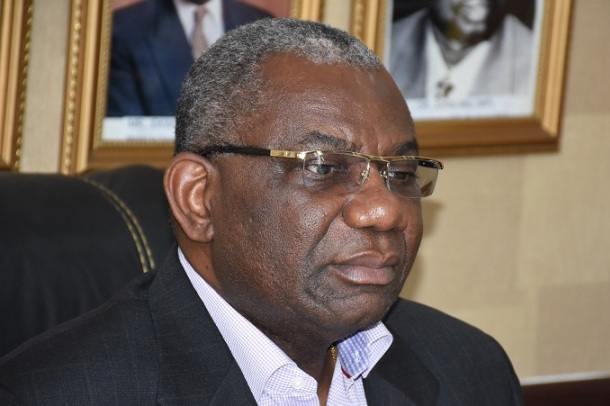$170m judgement debt: World Bank warned you – Agyarko to NDC
- Posted on
- Comment

The World Bank warned Ghana against the number of Power Purchasing Agreements (PPAs) the Mahama administration was signing but the then government did not listen, President Akufo-Addo’s first Energy Minister in his first administration, Boakye Agyarko has said.
“The World Bank gave the advise that if they didn’t cancel all the PPAs and if it goes on, business as usual, it will incur a lot of costs, “ he said on Net 2 Wednesday June 30 while speaking on the $170million judgement debt Ghana has been slapped with.
He further revealed that officials of the NDC administration realized that they had signed several unnecessary power agreements in the energy sector.
He read portions of a report released by the Energy Commission during the Mahama administration saying, “The ECG has executed a number of PPAs and is in the process of negotiating additional PPAs to purchase power. However, it has been observed that the implementation of some of the PPAs may result in excess contracted capacity leading to the payment of capacity charges for power plants which may not be required in the short to medium term.
“The Ministry of Power, acting on the directive of the office of the president of the Republic of Ghana constituted an inter-ministerial committee to review the fiscal and legal implications of a power purchasing agreement executed by the electricity company of Ghana for the purchase and supply of electrical power from independent power producers.
“Even though the ECG has executed PPAs for both conventional and renewable energy, the review as directed by the Ministry of Power, focuses only on PPAs for the conventional thermal power projects.
“This action has become necessary in view of efforts being made by government to ensure adequate and affordable power is made available to citizens . This is in consideration of a move to procure adequate power as an when required and avoid excessive capacity development which leads to increase capacity charges.
“The committee was inaugurated 29th September 2016 by the Chief Director of the Ministry of Power.”
A London-based United Nations Commission on International Trade Law tribunal has ordered the government of Ghana to pay a contractually defined “early termination payment” of more than US$134.3 million plus interest and costs.
This follows the termination of the contract between the government of Ghana and an independent power producer, Ghana Power Generation Company (GPGC) in 2018.
This has resulted in accusation and counter accusations among officials of the present administration and the previous Mahama administration.
For instance, Former Power Minister Dr Kwabena Donkor told the Attorney General Godfred Yeboah Dame that the $170million judgment debt to the Ghana Power Generation Company (GPGC), was as a result of wrongful termination and not wrongful signing of the agreement.
The Pru East lawmaker told Dzifa Bampoh on the First Take on 3FM Wednesday June 23 that the agreement went through due process before it was signed.
Mr Dame had said the decision by the signatories to sign such an agreement was uninformed.
“The fundamental question that we asked is why the agreement was entered into in the first place? Why did John Jinapor and his former boss execute the signatory of this agreement and afterwards set up a committee to review those agreements?
“It is because you yourself had realised that this was going to result in excess capacity,” he said.
“Indeed, the cost was very, very monumental. As per the report of the PPA Committee, if all the agreements signed by John Jinapor and his former boss had been allowed to run, each year, the nation was going to be exposed to payment to the sum of $586 million.
“Cumulatively, between 2013 and 2018 the nation was going to pay as much as $1.76 billion,” he told Joy News.
Reacting to his comments, Dr Kwabena Donkor told Dzifa that “The awards was given for wrongful termination, not for wrongful signing. I am therefore surprised that the Attorney General does not deem it fit to confirm that whoever terminated will also be referred to the CID.
“The Ghana Power Generation Company (GPGC) was sent to cabinet, it had cabinet approval. Indeed, the Secretary to Cabinet wrote to Parliament on the 3rd of July 2015, and parliament approved the agreement.
“It went through the constitutional process set out for these agreements.
“This agreement had the lowest tariffs of all the emergency power purchasing agreements. It had the shortest duration, four years and that agreement did not require any financial security from the state of Ghana and therefore it was one of the agreements negotiated.”
By Laud Nartey










 (Selorm) |
(Selorm) |  (Nana Kwesi)
(Nana Kwesi)